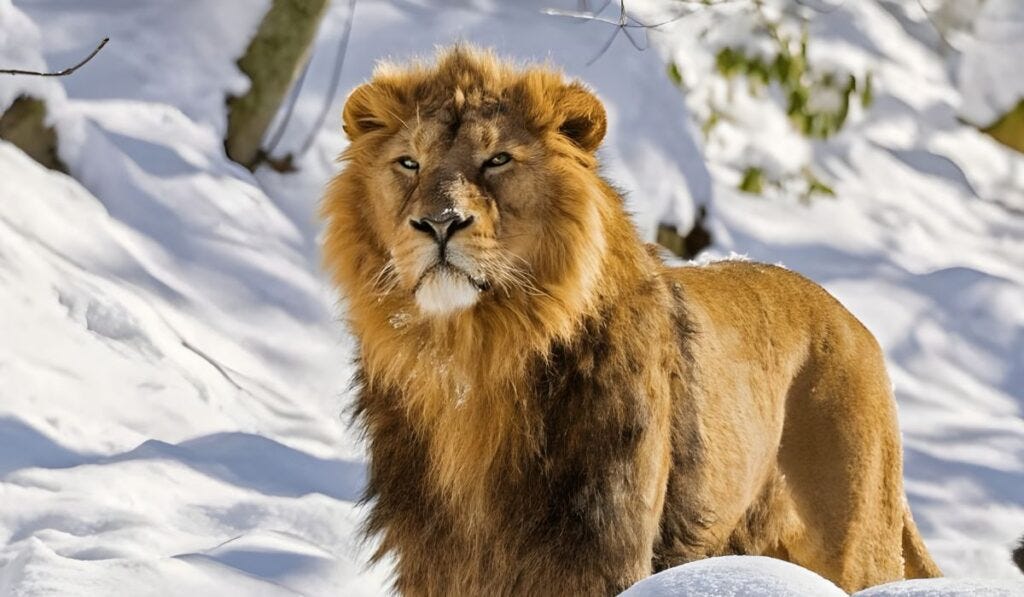So you’re curious about the secrets behind the happiness and health of lions, huh? Well, look no further because we’ve got all the answers you’re searching for. Lions are not only known for their majestic presence and fierce hunting skills but also for their optimal well-being. From maintaining a balanced diet to engaging in social interactions, lions have a unique set of strategies to keep themselves content and in prime condition. In this article, we’ll uncover the fascinating ways in which lions manage to stay happy and healthy in their wild habitats. Get ready to be enlightened by the amazing world of these incredible creatures!
Physical Exercise and Activity
Hunting for Food and Staying Active
One of the primary ways that lions stay happy and healthy is through their hunting behavior. Lions are apex predators, and they rely on their strength, speed, and teamwork to bring down their prey. Hunting provides lions with a physically demanding activity that keeps them active and helps to maintain their fitness levels. It also stimulates their natural instincts and allows them to engage in the behaviors they were designed for.
Hunting for food not only provides lions with a source of sustenance but also keeps them mentally and physically stimulated. The process of stalking, chasing, and capturing prey requires a combination of strength, agility, and sharp reflexes. This high-intensity exercise helps to keep the lions’ muscles strong and their cardiovascular system in optimal condition.
Playing and Engaging in Social Activities
In addition to hunting, lions also engage in play and social activities to stay happy and healthy. Play behavior is key in the development of young lions, where they learn important skills, such as hunting techniques and social bonding. It also helps them to build strength and coordination.
Lions are highly social animals that live in prides consisting of multiple females, their offspring, and a coalition of males. Interacting with other pride members is crucial for social bonding, establishing hierarchies, and maintaining a sense of community within the pride. Playful activities, such as wrestling and chasing each other, serve as a form of exercise and enable lions to strengthen their bonds with one another.
Balanced and Nutritious Diet
Varied Prey and Nutritional Requirements
Maintaining a balanced and nutritious diet is essential for the health and well-being of lions. Their diet primarily consists of large ungulates, such as zebras and wildebeests, but they also prey on smaller animals when necessary. The varied prey species provide lions with a diverse range of nutrients necessary for their overall health.
Lions require a diet high in protein to support their muscular physique and strength. They also need sufficient fat for energy and various vitamins and minerals for the proper functioning of their bodies. By consuming a diverse range of prey, including different species and age groups, lions can fulfill their nutritional requirements and maintain optimal health.
Consistency in Feeding Patterns
Having a consistent feeding pattern is crucial for lions to stay happy and healthy. They are opportunistic hunters and rely on successful hunts to provide them with food for several days. Establishing a routine for feeding helps lions regulate their energy levels and ensure they receive an adequate amount of nutrition.
Lions typically have a feast and famine feeding schedule, where they gorge themselves after a successful hunt and then go without food until they make another kill. This pattern allows their digestive system to efficiently process large quantities of food at once and then have enough time to rest and conserve energy between meals.
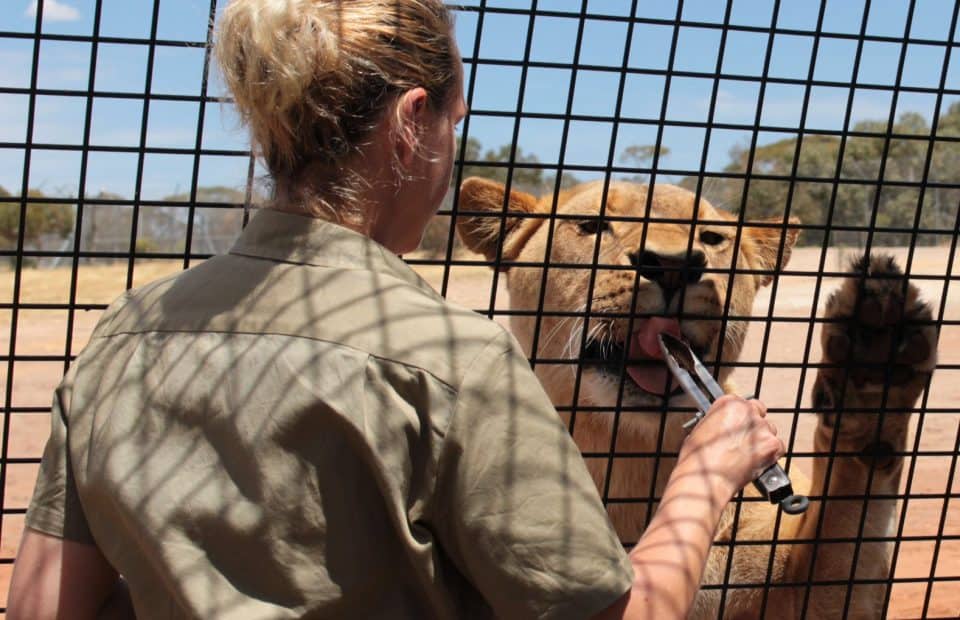
Hydration and Drinking Habits
Water Sources and Availability
Water is essential for the survival of lions, and they rely on accessible water sources to meet their hydration needs. In their natural habitats, lions can often find water in the form of rivers, lakes, and watering holes. These sources provide them with the necessary fluids to stay hydrated and maintain their overall health.
However, the availability of water can vary depending on the location and season. During periods of drought or in arid regions, lions may face challenges in finding water. In such cases, they may need to rely on the moisture content of the prey they consume to supplement their water intake.
Drinking Frequency and Quantity
Lions have specific drinking habits that contribute to their hydration and overall well-being. After a successful hunt, they are known to drink large quantities of water to rehydrate themselves and replenish their fluids. This helps to regulate their body temperature and ensures proper organ function.
The frequency and quantity of drinking can vary depending on individual lions and environmental conditions. However, lions generally have to rely on their instincts and experience to determine when they need to drink and how much water is required to satisfy their thirst.
Rest and Sleep
Finding Safe Sleeping Spots
Rest and sleep are crucial for the physical and mental well-being of lions. These big cats require a safe and secure place to rest, free from potential threats or disturbances. Sleeping spots are often strategically chosen, providing lions with cover, camouflage, and easy access to nearby hunting areas.
Lions prefer to rest in shaded areas during the day to avoid the intense heat. They often seek out dense vegetation or the shade of trees, where they can rest comfortably and protect themselves from the sun’s rays. These resting spots also offer lions a sense of security and allow them to relax and recharge before their next activity.
Amount of Rest Required per Day
Lions typically spend a significant portion of their day resting and sleeping. On average, adult lions rest for around 15 to 20 hours a day, although this varies depending on factors such as food availability, temperature, and the presence of predators or disturbances. Resting allows lions to conserve energy, regulate their body temperature, and recover from physical exertion.
The amount of rest required per day ensures that lions are prepared for their hunting activities and other social interactions. It also allows their bodies to heal and regenerate, promoting overall health and longevity.
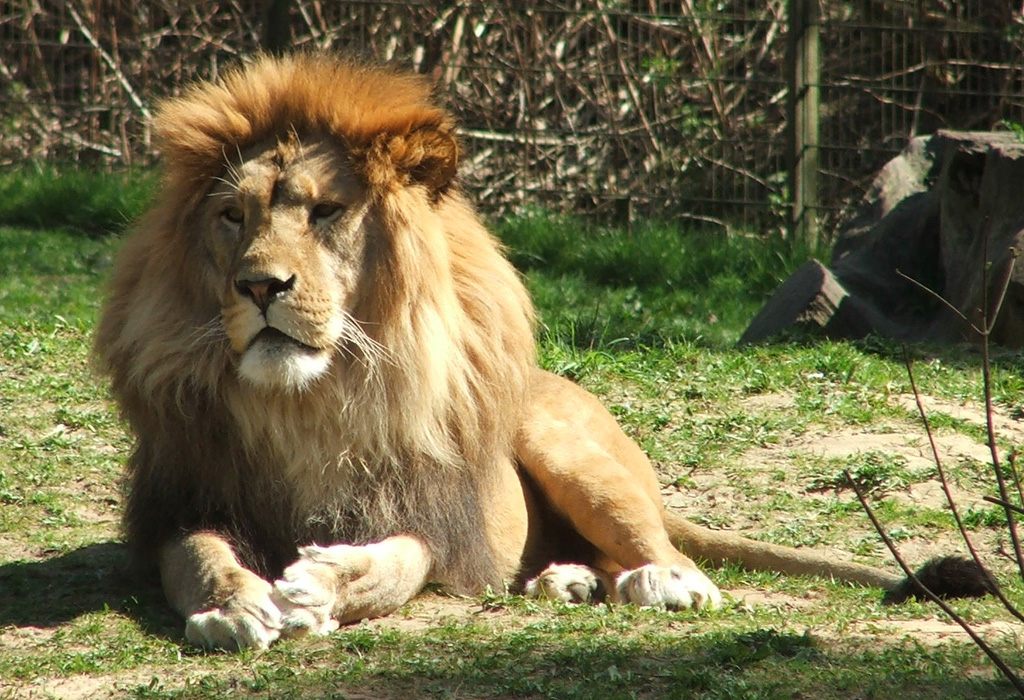
Social Interactions and Social Structure
Forming Prides and Group Dynamics
Lions are known for their social nature and live in prides, which consist of related females, their offspring, and a coalition of two or more males. Forming prides and maintaining a structured social system is essential for the well-being of lions.
In prides, lions engage in various social interactions, including grooming, playing, and bonding activities. These interactions strengthen the social bonds within the group, reduce stress levels, and contribute to the overall happiness and mental stimulation of individual lions.
Communication and Bonding
Communication plays a vital role in the social interactions and bonding of lions. Lions use a variety of vocalizations, such as roars, growls, and purrs, to communicate with one another. These vocalizations serve as a way to maintain contact, coordinate hunting strategies, establish dominance hierarchies, and communicate possible threats or aggression.
In addition to vocalizations, lions also communicate through body language and scent marking. Rubbing against objects and scratching trees allows lions to leave their scent, marking their territory and indicating their presence to other pride members. These communication methods help to establish a cohesive social structure and ensure effective cooperation within the pride.
Grooming and Personal Hygiene
Maintaining Clean Fur and Skin
Grooming is an essential behavior for lions, allowing them to maintain clean fur and skin. Lions use their tongues and teeth to clean their fur, removing dirt, debris, and parasites. Grooming helps prevent the build-up of bacteria, regulate body temperature, and maintain the health of their skin.
Regular grooming also plays a role in the social bonding within a pride. Lions often groom each other as a form of social interaction and demonstrate their affection and care for one another. It is a way to strengthen the bond between pride members and promote positive relationships within the group.
Removing Parasites and Ticks
Lions encounter various parasites, such as ticks, fleas, and mites, in their natural habitats. These parasites can cause discomfort and contribute to the spread of diseases. Grooming behavior helps lions remove these parasites from their fur, reducing the risk of infestation and keeping their bodies free from harmful pathogens.
Removing parasites is not only important for the individual lion but also for the overall health of the pride. By minimizing the risk of parasite infestations, lions can protect themselves and their pride members from potential health issues and maintain optimal hygiene.
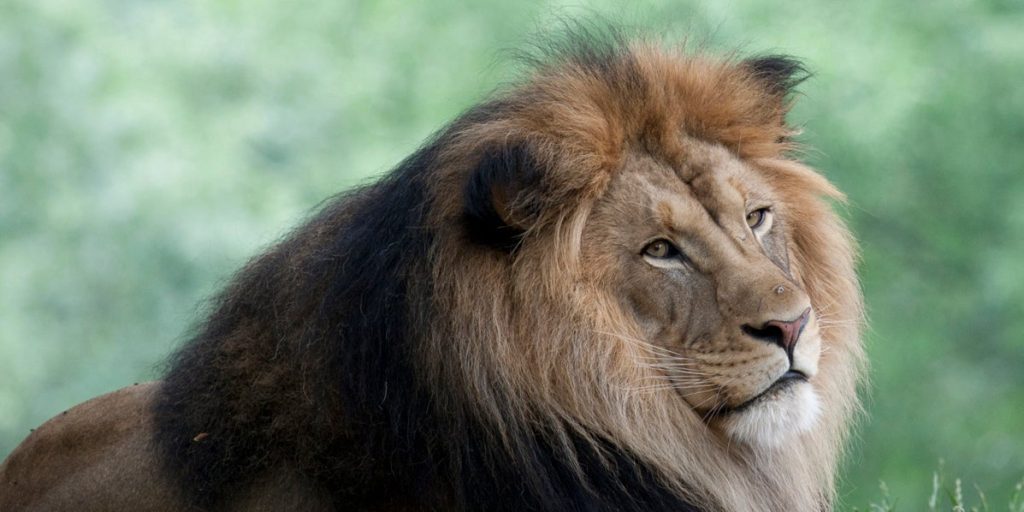
Maintaining Territory and Marking Boundaries
Scent Marking and Roaring
Maintaining territory and marking boundaries is crucial for lions to secure resources and defend against potential rivals. Lions use scent marking and roaring as methods to communicate and establish their territorial boundaries.
Scent marking involves urinating, defecating, and rubbing against objects within their territory, leaving behind their scent. This communicates to other lions that the area has been claimed, and trespassing may lead to aggressive encounters. Roaring is another way lions assert their dominance and communicate their presence over long distances, warning potential intruders to stay away.
These territorial behaviors ensure that lions have access to sufficient prey, water sources, and resting areas, contributing to their overall well-being and survival.
Defending Their Territory
Lions are fiercely protective of their territory and will defend it against rival groups or individuals. Intruders are seen as a potential threat to the resources within the territory, and lions will engage in aggressive behavior to deter them.
Defending their territory requires strength, unity, and strategic planning. Lions work together to confront intruders, utilizing their size, speed, and sharp claws to establish dominance and protect their territory. By successfully defending their territory, lions secure their access to food, water, and safe resting spots, ensuring their happiness and survival.
Avoiding Harmful Substances and Toxins
Identifying and Avoiding Poisonous Plants
In their natural habitats, lions come across various plants that may be toxic or harmful if consumed. While carnivores primarily rely on meat for their nutrition, there are instances where they may inadvertently consume plant material during hunts or when feeding on the stomach contents of their prey.
Lions have an innate ability to recognize and avoid most poisonous plants. They rely on their instincts and learn from their interactions with their surroundings to identify potential hazards. This helps them to steer clear of toxic substances and minimize the risk of ingesting harmful plants.
Minimizing Exposure to Harmful Substances
Lions also need to be cautious of other harmful substances they may encounter in their environment. Pesticides, pollutants, and other contaminants can pose risks to their health if they come into contact with them. Lions mitigate exposure to these substances by staying within their territory, which they have previously evaluated for potential dangers, and avoiding areas that may harbor contaminants.
Their efficient hunting skills and reliance on fresh prey also contribute to minimizing exposure to potentially harmful substances. By consuming freshly killed prey, lions ensure they are obtaining food that has not been contaminated and reduce the risk of ingesting toxins or harmful chemicals.
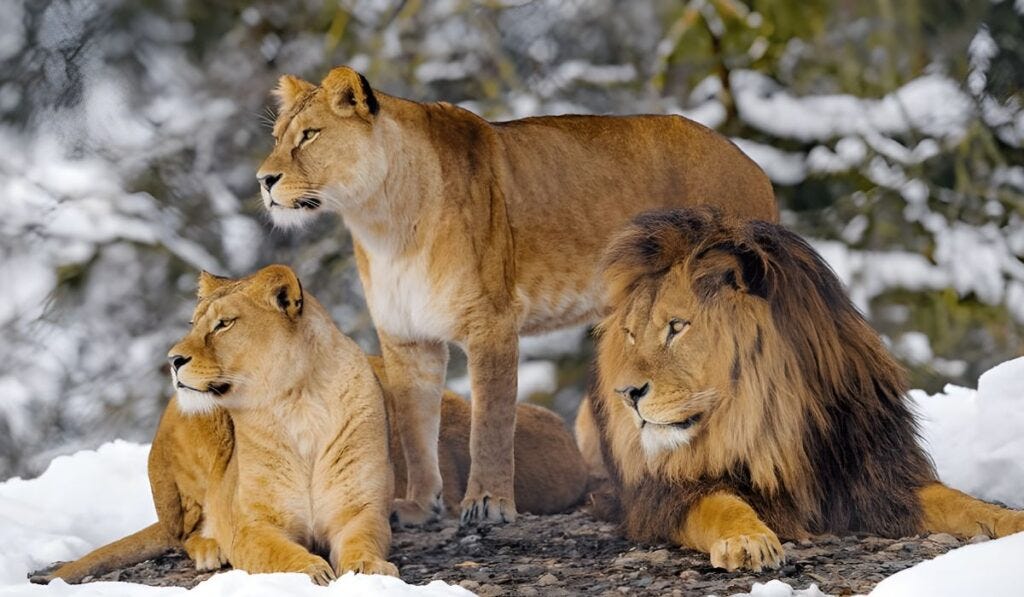
Regular Health Check-ups and Veterinary Care
Medical Examinations and Vaccinations
Just like any other animal, lions require regular health check-ups and veterinary care to maintain their well-being. In captivity, it is common for lions to undergo medical examinations, which involve thorough physical examinations, blood tests, and vaccinations. These examinations help identify any underlying health issues and prevent the spread of diseases within captive populations.
Vaccinations are an essential part of lion healthcare, protecting them from various infectious diseases. Strategic vaccination protocols are implemented to target specific diseases that lions could be susceptible to. By regularly vaccinating lions, caregivers can reduce the risk of illness and promote the overall health and longevity of the animals.
Monitoring and Addressing Health Issues
Lions, both in the wild and in captivity, are susceptible to various health issues. Regular monitoring and prompt intervention are necessary to address any health problems that may arise. Routine observation of lions’ behavior, appetite, and physical condition allows caregivers to detect potential health issues early and take appropriate measures to address them.
When health issues occur, veterinarians assess the lions’ condition, provide medical treatment, and implement management practices to promote recovery. Timely intervention plays a crucial role in mitigating the impact of illnesses or injuries and ensuring the well-being of the animals under the care of dedicated professionals.
Genetic Diversity and Mating
Importance of Genetic Variation
Maintaining genetic diversity is vital for the long-term survival of lion populations. Inbreeding, which occurs when closely related individuals mate, can lead to a decrease in genetic variation and increase the risk of health problems in offspring.
Lions have developed natural mechanisms to avoid inbreeding. Males usually disperse from their natal pride to seek mates in other prides or form coalitions with unrelated males. This dispersal helps ensure genetic variation and protects against the negative effects of inbreeding.
Zoos and conservation organizations also play a crucial role in managing lion populations to maintain genetic diversity. Breeding programs aim to pair lions with genetically diverse mates to promote healthy offspring and preserve the species for future generations.
Choosing Healthy Mates for Reproduction
When it comes to choosing mates, lions rely on several factors to ensure healthy offspring. Females assess potential mates based on physical condition, strength, and social standing. Males with prominent manes and larger body sizes are often preferred, as they may signify better health and fitness.
In addition to physical traits, lions also engage in courtship behaviors, including vocalizations and physical displays, to attract potential mates. These behaviors allow females to assess the suitability of the males and select the most compatible mate for reproduction.
Choosing healthy mates is essential for maintaining the overall fitness and genetic diversity of lion populations. By selecting mates wisely, lions contribute to the long-term survival and well-being of their species.
In conclusion, lions stay happy and healthy through a combination of physical exercise, a balanced and nutritious diet, proper hydration, adequate rest, social interactions, grooming, maintaining territory, avoiding harmful substances, receiving veterinary care, and ensuring genetic diversity in their mating behavior. These various aspects of their lifestyle and behavior contribute to their overall well-being, allowing them to thrive in their natural habitats and captivated environments. By understanding and appreciating the factors that contribute to the happiness and health of lions, we can better care for these magnificent animals and support their conservation efforts.
